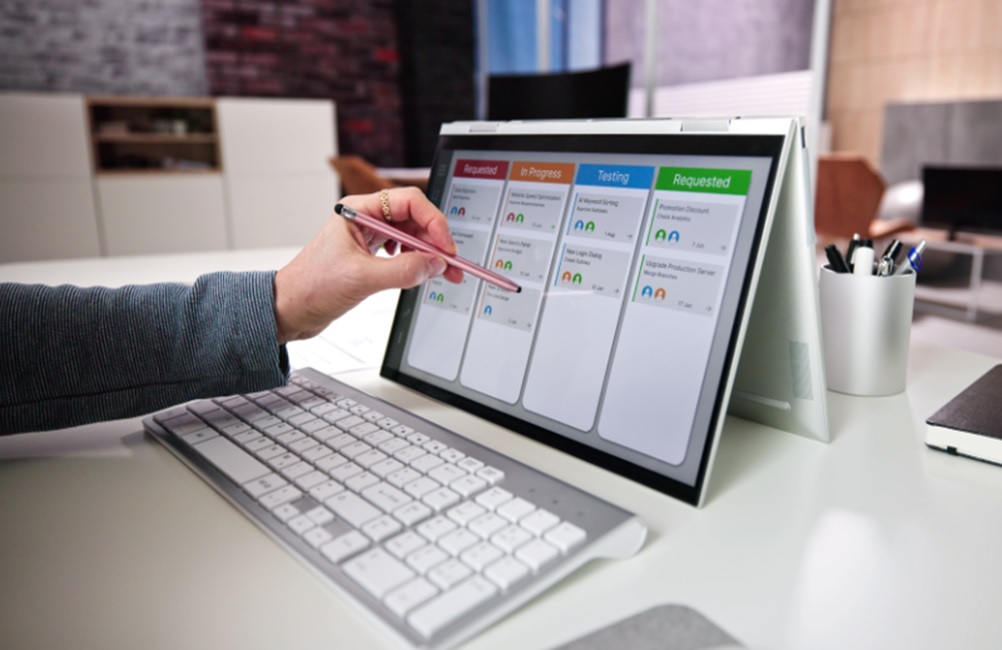
Managing projects efficiently can be a daunting task. From timelines to functions to team coordination, project management requires the right approach to keep everything organised. One of the best ways to achieve this level of efficiency is by utilising a project management tool. In today’s fast-paced business environment, having the right project management software is vital to ensuring success. Project management trackers help businesses maintain oversight, manage deadlines, and streamline communication among teams. Let’s dive deeper into why these tools are crucial for project success and how they improve productivity.
Enhancing Organisation and Accountability
Keeping track of every aspect of a project, from small tasks to large milestones, can easily overwhelm any team. A project management tool helps break down complex projects into smaller, manageable tasks. This not only helps in structuring the workflow but also assigns clear responsibility to each team member. Project tracking ensures that every task is monitored closely, allowing managers to identify and address bottlenecks before they escalate.
Moreover, project management software holds team members accountable. With real-time updates and notifications, everyone on the team stays aligned with the project’s goals. Teams can log their progress, update timelines, and highlight potential risks. This improves accountability and transparency, helping teams to meet deadlines effectively. Having the best tools for project management in place promotes a proactive working environment where every task is monitored, and no detail is left unchecked.
Streamlining Communication Across Teams
One of the major hurdles in any project is poor communication. Missed emails, misunderstandings, or even team members working in silos can derail a project’s progress. A reliable project management tracker eliminates this problem by creating a centralised hub where all communication related to the project occurs. With integrated chat functions, file sharing, and real-time updates, team members can collaborate seamlessly.
This project tracking feature allows managers to keep conversations within the context of specific tasks, ensuring clarity and focus. Documents, timelines, and task notes can be easily referenced in one place, making it simpler for teams to stay on the same page. A project management tool keeps everyone informed, removing the confusion caused by scattered communication channels. This not only boosts productivity but also reduces the chances of misunderstandings and errors.
Time Management and Resource Allocation
Effective resource allocation is key to keeping any project on track. Without the proper allocation of time, manpower, and materials, projects can quickly fall behind schedule. Project management software enables teams to map out all aspects of resource allocation. Time tracking, task dependencies, and workload distribution can be planned effectively. This ensures that teams have the resources to complete their tasks without delays.
Project management trackers also help teams prioritise tasks, ensuring that critical tasks are completed first. This way, teams can avoid working on low-priority tasks at the expense of deadlines. Managers can view resource allocation through clear visualisations and reports, allowing them to optimise available resources. With the best tools for project management, teams avoid burnout, and managers maintain control over time-sensitive tasks, ensuring project completion within the set timeframes.
Real-time Monitoring and Analytics
Project management tools are invaluable for real-time monitoring and tracking project progress. With comprehensive dashboards, project managers can oversee every stage of the project and identify any deviations from the plan. This real-time data allows for quick decision-making, minimising the risk of project delays. Project tracking gives insights into performance metrics such as task completion rates, resource utilisation, and budget adherence.
Project management software also offers analytical tools that allow managers to assess the effectiveness of the project strategy. Based on real-time data, reports can be generated to understand which areas require improvement. This ability to track progress and adjust strategies mid-project ensures that goals are met more efficiently. The data collected also acts as a valuable resource for future project planning, enabling teams to refine their approach based on past performance.
Adaptability and Scalability
Businesses grow, and so do their project needs. The best tools for project management are highly adaptable and scalable, meaning they can handle projects of varying sizes and complexity. Whether managing a small team or coordinating across departments, project management tools grow with the needs of the business. Their flexibility allows for easy onboarding of new members, quick task reassignment, and seamless transitions between project phases.
Moreover, cloud-based project management software ensures team members can access projects from any location, making remote work much easier to manage. Whether the team is located in different parts of the world or working from home, everyone can stay updated and connected through the project management tracker. Scalability ensures that as a business expands, the software will continue to support its growing demands.
Conclusion
Project management tools are essential for any team or organisation looking to manage projects effectively. They help streamline communication, track progress, optimise resources, and ensure accountability within the team. With project management software, managers can avoid delays, meet deadlines, and improve productivity. Project tracking also enables real-time monitoring and data-driven decision-making, allowing teams to stay agile and efficient.
To streamline your project management process, request a demo at Happy5 for a reliable project management tracker that will help you meet your goals.

